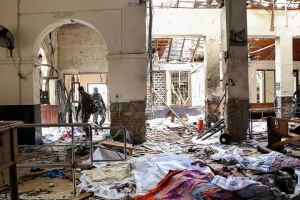This Tuesday, Kyrgyzstan’s parliament is set to hold the first reading of the highly repressive “foreign representatives” draft law, which would interfere with the activities of nongovernmental organizations receiving funding from abroad. If adopted, the bill would have a chilling effect on Kyrgyzstan’s vibrant civil society, curbing their ability to defend the human rights of ordinary citizens, provide social services, and contribute to the development of a robust and inclusive society.
On Friday, the spokesperson for the United Nations High Commissioner for Human Rights expressed “serious concerns” about the bill and said it should be withdrawn. This follows an October 6 statement by three UN experts that calls the draft “contrary” to Kyrgyzstan’s international human rights obligations.
Two parliamentary committees approved the bill on October 3 and 10, clearing the way for three readings in the plenary of parliament. In the past, parliament has adopted restrictive laws by holding several readings on one day, in violation of its own procedural norms that require at least 10 working days between each reading.
The draft law requires organizations to register with the Justice Ministry for allegedly “performing functions of a foreign representative.” This would apply to any organization receiving funding from abroad and engaging in “political activity,” which is vaguely defined as any “actions aimed at changing state policy and shaping public opinion for these purposes.”
The bill grants the government significantly enhanced oversight powers, including the right to participate in the internal activities of these nongovernmental organizations, ostensibly to determine if they are consistent with the organization’s founding purpose. Establishing or participating in a nongovernmental organization found to be “inciting citizens to refuse to perform civic duties or to commit other unlawful deeds” would be punishable with up to 10 years in prison.
The bill has attracted strong national and international opposition, including a resolution by the European Parliament.
This is a crucial moment for Kyrgyz authorities to demonstrate their commitment to respecting human rights in accordance with the country’s international legal obligations. This is especially relevant in light of the country’s pledge, made in February when Kyrgyzstan became a member of the United Nations Human Rights Council, to uphold rights at home and abroad.
Kyrgyzstan’s parliament should reject the bill and President Sadyr Japarov should refuse to sign it into law if it does pass.
Source : HRW










